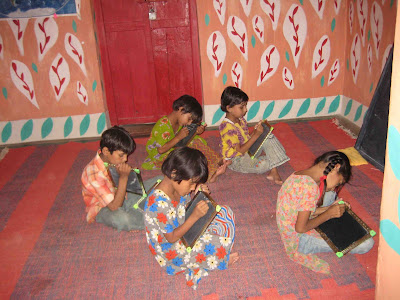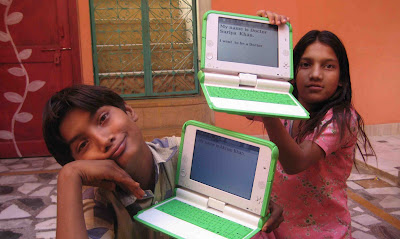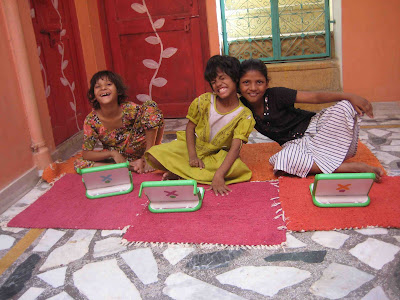Recently I read of a school in India that is truly practicing international education and collaboration. The Merasi School is an incredible venture in India, co-created by two people from across the world. Co-created by Caitie Whelan, our new India Editor, The Merasi School is a place for great community change - from within, and from without. I am so very impressed by their work that we've designated the Merasi School as one of the humanitarian causes to which we donate a portion of our income. Yes, it is THAT important to us, that we help support truly incredible organizations like this one.
I was lucky enough to sit down and talk with Caitie about the Merasi School. Here's what she had to say...
WE: Please tell us about the Merasi School...
CW: The Nuts & Bolts of The Merasi School
The Merasi School is the very first school established for the marginalized lower caste Merasi (musician or keeper of the stories) community of Jaisalmer, Rajasthan, India. For 36 generations, the Merasi have been the composers and gatekeepers of a rich musical heritage that narrates the folk history of the ancient desert landscape in northwestern India. They are an auspicious presence at weddings, funerals, and other major rites of passage. Despite their tremendous musical lineage, the Merasi are considered 'Untouchable' within India's hierarchical caste system. While India as a country is moving away from the caste system, Rajasthan, where The Merasi School is based, is one of the most conservative states and caste dictates most social interaction. Consequently, the Merasi are born without birth certificates, denied access to education, political representation, adequate health care, and gainful employment, leaving the average family to live on less than $1 a day. As modernization blazes across India, traditional music, the Merasi community's one recognized form of social worth, is on the cusp of extinction. The Merasi School exists to provide an exceptional arts and literacy based education that gives students the opportunity to honor their cultural past and expand the possibility of their social future.

Little Class putting chalk to slates
WE: How did the Merasi School get started?
CW: Our Roots
The Merasi School grew out of overwhelming community desire. Back in 2004, I was an aspiring actress with no interest whatsoever in India. After logging in one year at college, I left with the burning awareness that the learning I needed to get in under my belt was not to be found in theory-based papers and the latest meta-analysis of gender in contemporary Broadway theater. Through elbow grease and a heap of serendipity, I found myself as an intern with Folk Arts Rajsathan (FAR, www.folkartsrajasthan.org), a small US-based nonprofit run by American artist Karen Lukas, that works in conjunction with Lok Kala Sagar Sansthan, an Indian Non-Governmental Organization (NGO) run by Merasi Sarwar Khan, to promote their mutual missions of empowerment for the Merasi community. The depth of creativity and expanse of need within the Merasi community brought me to my knees. Everything that made me a person of value in the US -- the height of my GPA, the depth of my bank account, the length of my resume -- meant nothing to the Merasi. The only currency of value were my vital organs: my heart and ears, and then, a little later on down the road, what my mind did with the information that came into either one. Theater, I quickly realized, was one way to initiate change, but it wasn't the way that I could be most effective.
Even the Best Laid Plans...
So, I put my ear to the ground and tried to get a sense of what the Merasi's point of change right now might be and what emerged was musical preservation. But I needed a bit of context before I really sunk my teeth in. I transferred into Brown in the spring of 2005, started taking Hindi and eating up every course on Indian culture I could get into. After contextualizing the bones of my emotional experience on the ground with the meat of historical and contemporary Indian society, I spent the spring of 2006 applying for grants, learning how to make field recordings, and designing the architecture for The Music Narratives Project, the first archive of Merasi music. Before I trotted off to the desert sands, a brilliant professor of mine doled out these parting words to the wise: "Caitie, when theory hits the blacktop, it's anybody's guess what can happen." I nodded and then spent the next two months in India trying to make meaning of all the shattered pieces of theory that surrounded The Music Narratives Project. Working with LKSS Merasi director, Sarwar Khan, and Folk Arts Rajasthan director Karen Lukas, we were capturing terrific recordings, the archive was coming steadily together, and yet I felt like something big was missing.
What I realized was that cultural preservation was just one piece of the pie. And the community had been saying that all along. What started as a gentle murmur grew into a collective community roar: "An archive won't put food in our stomachs and hope in our hearts. We need something bigger." And they were absolutely right. So, I began to have conversations with Sarwar and the community where we asked bigger questions and what emerged across age, gender, and geographic boundaries was education. And it made sense. FAR/LKSS had launched a very successful women's literacy project that had high daily attendance and was nearing completion. So, building off the assets of the women's literacy project, Sarwar and I co-founded The Merasi School, the educational branch of Folk Arts Rajasthan, in the summer of 2007.

Akram and Suriya give the basics
WE: What are the goals of your school?
CW: Our fundamental goal is to create walkable avenues towards choice and opportunity. Through developing core muscles of critical analysis, constructive reasoning, and creative problem solving, education enables our little guys and gals to preserve their rich musical legacy, expand the scope of possibility within their lives and see themselves as individuals capable of changing the landscape of their world. For 36 generations, Merasi have been told what their worth is. Sarwar and I believe that with education, Merasi will be able to define and communicate their worth to the world at large.
WE: How can people help out, with the Merasi School?
CW: The greatest form of support at this early stage of The Merasi School's life is financial. With very little, we have been able to purchase a lovely little building that our students can call their very own school, hire and train two local teachers to teach our three classes (Very Little Class, Little Class, and Big Class, as they have chosen to call themselves) expand our student population relative to teacher capacity (30 gritty, gutsy, big-hearted students ranging from ages 4-12) and offer daily computer tuitions. We are looking to create a powerful financial backbone that nourishes our existing classes and creates potential for new ideas and growth. Donations of any size make tremendous impact.
WE: I'd love to know more about The Thread: Merasi in the world...
CW: None of us are islands. Our actions are the result of richly complex global trends and local patterns. Initiatives such as The Merasi School criss-cross all pockets of the globe. Pooling our collective experiences enables us, as a community of educators and entrepreneurs, to innovate in the field, rather than reinvent the wheel and stumble into the same ruts. The objective of The Thread is to connect the many dimensions of The Merasi School with global themes around education, globalization, cultural preservation, and human rights in the hopes that our experience/lessons learned can further the quality, caliber, and possibility of international education as a field.
To further explore these connections, we are just thrilled to introduce The Thread: Merasi in the World, two fresh monthly website elements: Student Portraits and A Few Connecting Threads.
Each month, we will feature the story of one Merasi child's dreams, schemes, and in-betweens through a Student Portrait. The Student Portrait will be complemented by A Few Connecting Threads, a conversational article by a professional in a relevant field, be it elementary education, anthropology, politics, or beyond, who will stitch the Student Portrait into the larger fabric of global issues. The Thread: Merasi in the World will have its grand debut in mid-November.

Rojieela, Seema, and Alfreen do a different kind of work
WE: Is there anything else you'd like to share with us?
CW: The Merasi School works because it is a community-driven, assets-based initiative. When working with the Merasi, it is easy to focus in on the depth of need that exists. There is so much that they do not have -- education, political representation, health care, financial resources. But that blinds you from what they do have, which is a 36-generation old musical legacy that exists nowhere else in the world. So we used the assets as our jumping-off point and built on FAR/LKSS' pre-existing literacy success. Which makes sense. Would you rather build a skyscraper on a ditch or on a pre-existing foundation? Would you rather build a skyscraper on a ditch or on a pre-existing foundation? One of our greatest strengths is that co-founder Sarwar Khan is Merasi, enabling the shape, tone, and direction of our work to be driven by community desire. And that's the heart and soul of it. In every action that we take, The Merasi School, with the support of Folk Arts Rajasthan, lives and breathes to empower a community that has been stripped of dignity, respect and choice for 36 generations with the core educational tools of possibility and hope.
WE: Thank you so much, Caitie. When I think of all the tremendous work you've been able to accomplish thus far, it brings tears to my eyes. THIS is what international education is truly about. Brava, for your strength, hard work, and incredible collaboration in changing people's lives.
For more information on the Merasi School, please see: http://merasischool.org/
